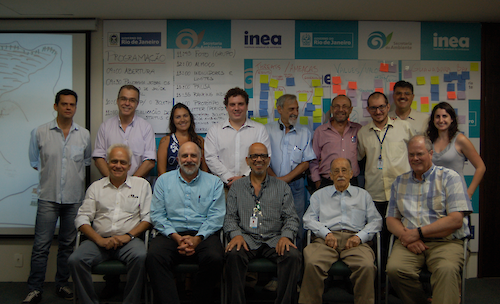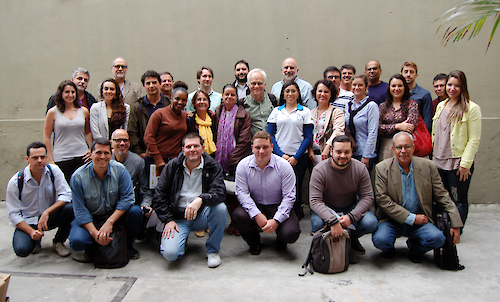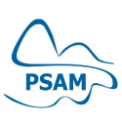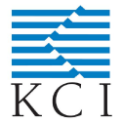 The Guanabara Bay Report Card, developed with several Rio de Janeiro state representatives and organizations, is the first of its kind carried out through a partnership between State of Rio de Janeiro, KCI Technologies Inc., and the University of Maryland Center for Environmental Science (UMCES). Through stakeholder engagement, water quality indicators were short-listed to measure the health of the Guanabara Bay and its watershed basin. The status of these indicators was evaluated by comparing data to scientifically-derived thresholds or goals. The report card combines the indicators into overall scores for Guanabara Bay and the Guanabara Bay Basin.
The Guanabara Bay Report Card, developed with several Rio de Janeiro state representatives and organizations, is the first of its kind carried out through a partnership between State of Rio de Janeiro, KCI Technologies Inc., and the University of Maryland Center for Environmental Science (UMCES). Through stakeholder engagement, water quality indicators were short-listed to measure the health of the Guanabara Bay and its watershed basin. The status of these indicators was evaluated by comparing data to scientifically-derived thresholds or goals. The report card combines the indicators into overall scores for Guanabara Bay and the Guanabara Bay Basin.
 The first Guanabara Bay report card provides a transparent evaluation and a snapshot of the health of the Bay and the rivers in its hydrographic basin in a concise, easy-to-understand format to begin a dialogue about the future of the region. The report card has improved understanding of the conditions of the area, but is only the first step. This report card can provide a basis of information to influence policy and planning in the region.
The first Guanabara Bay report card provides a transparent evaluation and a snapshot of the health of the Bay and the rivers in its hydrographic basin in a concise, easy-to-understand format to begin a dialogue about the future of the region. The report card has improved understanding of the conditions of the area, but is only the first step. This report card can provide a basis of information to influence policy and planning in the region.
Workshop stakeholders recognized the need for action
During the development of the report card, three workshops and several surveys gave feedback about Guanabara Bay values, threats, and restoration efforts. The participants in these workshops represented many groups around the Bay and Basin including government, municipalities, non profits, universities, local communities, private sectors, fisheries groups, and others.
The following groups were instrumental in the development of the Guanabara Bay report card: Secretaria de Estado do Ambiente/Instituto Estadual do Meio Ambiente (SEA/INEA); KCI Technologies Inc (KCI); Programa de Saneamento do Municípios no Entorno da Baía de Guanabara (PSAM); Instituto Chico Mendes de Conservação da Biodiversidade (ICMBio); Associação Brasileira de Engenharia Sanitária – Rio de Janeiro (ABES-Rio); Instituto Terrazul; Comitê de Bacia da Região Hidrográfica da Baía de Guanabara (CBH-BG); Universidade Estadual do Rio de Janeiro (UERJ); Universidade Federal do Rio de Janeiro (COPPE/UFRJ); Prefeitura de Niterói; Instituto Pereira Passos (IPP/Prefeitura do Rio de Janeiro); Pontifícia Universidade Católica do Rio de Janeiro (PUC-Rio); Instituto Baía de Guanabara (IBG); Universidade Federal Fluminense (UFF); Prefeitura de Tanguá; Agência Reguladora de Energia e Saneamento Básico do Estado do Rio de Janeiro (AGENERSA); Fundação Brasileira para o Desenvolvimento Sustentável (FBDS); and ONG Guardiões do Mar. This report card was developed with support by the Inter-American Development Bank (IDB).
Partners






